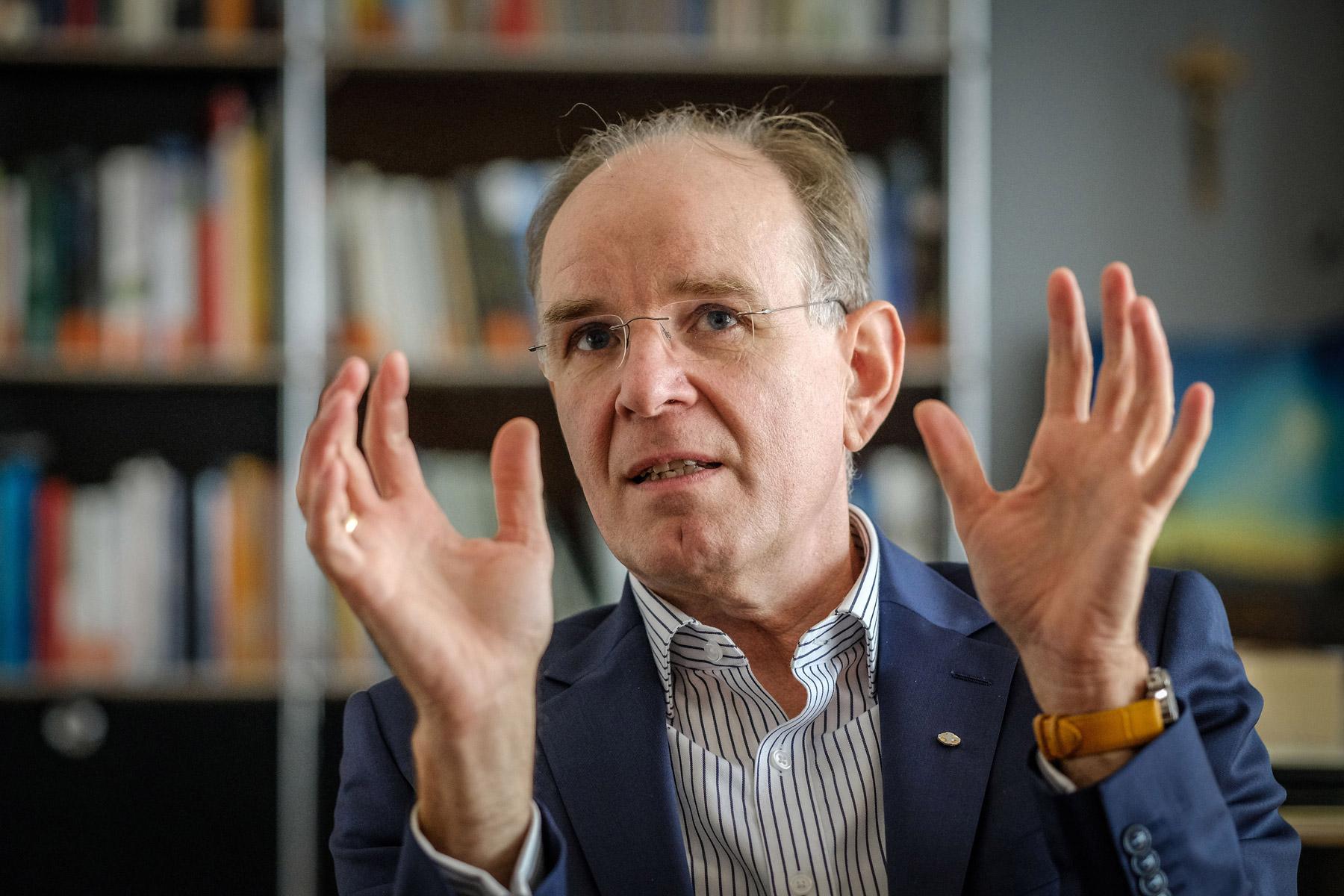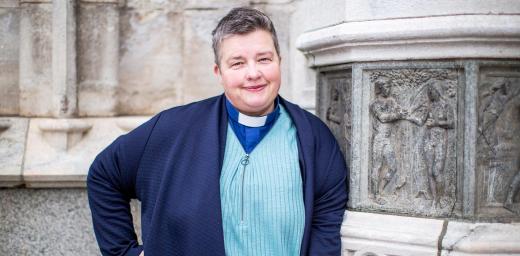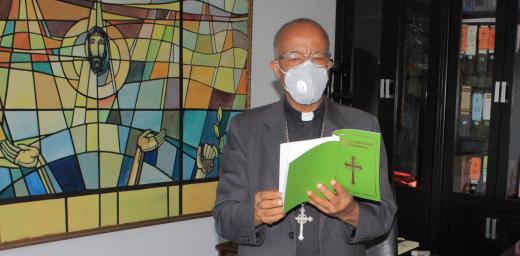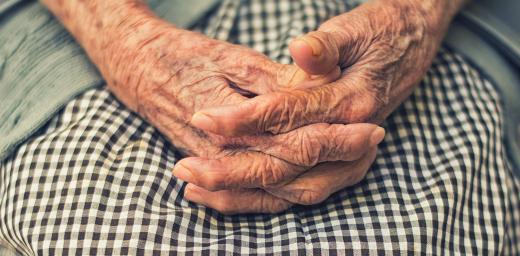COVID-19: New awareness of social cohesion growing in the crisis

Ralf Meister, Bishop of the Evangelical Lutheran Church of Hanover speaks about the effects of the COVID-19 pandemic on church and society in Germany. Photo: Jens Schulze/Evangelical Lutheran Church of Hanover
Voices from the Communion: Ralf Meister, Bishop of the Evangelical Lutheran Church of Hanover
(LWI) – It is over six months now, and the impact of the coronavirus pandemic can still be felt in most areas of public life in Germany. Besides restrictions in schools, childcare centers, cultural facilities, in retailing and catering, churches, too, are still affected by the protective measures that have been put in place.
In this Voices from the Communion interview, Bishop Ralf Meister of the Evangelical Lutheran Church of Hanover reflects on the transitional phase, from handling the acute crisis to the “new normality” – living with COVID-19 for the longer-term, and the upcoming challenges for churches, society and the economy.
Germany is gradually switching from the mode of acute crisis management into the much-quoted “new normality”. Bishop Meister, this is possibly a good point in time to ask you: What lasting insights have you gained so far?
The first positive perception for me is that in our society, we have managed to place the common good over the needs of the individual. Most people have not only accepted the restriction of individual freedom but, voluntarily and from deep conviction, practice consideration of their neighbor, who might be weaker and more vulnerable than they are. I am moved when I see how friendly and humane most people are acting in the COVID-19 crisis. That gives me hope, particularly as I had not expected so much community spirit.
Why not?
Almost excessive individualism has marked the last few decades. Personal freedom – and with it, a lack of commitment – seemed to be the highest good. Now, in the crisis, a new awareness is growing for social cohesion, for the fact that we are called to do our best in how we live with our neighbor. We need this attitude more urgently than ever.
Why is that?
The pandemic has raised many serious questions, questions that go far beyond the current exceptional situation, including questions about our system as such. I am thinking of the economic consequences of the COVID-19 crisis that are still unforeseeable. On the one hand, enormous political and financial efforts seek to prevent drastic collapses. These are rapid measures, which must take effect very rapidly to alleviate social distortions. At the same time, in this period in which a lot has been called into question anyway, the much more fundamental, long-term question is whether we will be able to continue with business as usual. Or whether we shouldn’t make a more vigorous attempt to tackle the sustainable transformation of many sectors of the industry such as mobility, energy, supply chains.
Isn’t that asking too much when the main issue now is trying to stop things from getting worse?
Now is the time. Now, of all times, there is greater awareness of problems than ever. The crisis of German auto manufacturers poses fundamental questions about our mobility. The abuses in the meat industry that have come to light again during the pandemic raise concern about our consumption at the expense of animals, human beings, and the environment. Those are only two examples of highly problematic developments that have long been known in our country. Now, in the crisis, there is immense pressure to act. This pressure also implies an opportunity: now that the problems can no longer be pushed aside, we must think harder about our handling of economic matters. We also have to question our unbridled logic of growth, and the increasing commodification of all our areas of life. And even our personal attitude to consumerism and comfort.
At the same time, this growth logic has provided widespread affluence in society. When that is questioned – what are the potential devastating consequences for the most vulnerable in society?
Naturally, there is a danger of deepening social ruptures that have also become more evident in the coronavirus crisis. That is why this reinvigorated community spirit I was talking about is gaining in importance. One expression of this community spirit could, of course, be that successful and wealthy people shoulder even more responsibility. Economists have been calling for a more intense dialogue with them about social responsibility for a long time.
So that could mean a wealth tax?
Whatever you want to call it in practice: social justice will always be evident in the tax system too.
What role can the church play in this time characterized by uncertainty, as well as by transition and signs of change?
First, it can convey hope, trust in God, and the confidence that we are sustained and sheltered in this phase of uncertainties. Preaching that inspires hope remains a central task of the church. Pastoral care is the “native language” of our church. Also, the church can become a strong force during this process of change. It can admonish, mediate and encourage.
At the institutional level, the church can act as a reliable counterpart in talks with politicians, associations, and stakeholder groups in society. It should also be a steadfast voice in the overarching debate. A voice that insists on truthfulness, caring for creation, and social justice. A voice that talks about controversial ethical issues and complicated situations.
At the local level, the church can act as a driver for creativity and change for sustainable thinking and action. How that works is evident in thousands of parishes. They are not only spiritual powerhouses but also centers of social and cultural life in the village and the urban neighborhood. Congregations that are active in assisting refugees, protecting the environment, supporting disadvantaged people, and those with less access to education, singing, and celebrating; those are only a few facets of a church congregation. There you can experience on a small scale good and neighborly life, the kind I wish for the whole of society.
This neighborly life is hampered in times of social distancing and hygiene rules. Did the churches need to close when – at the same time – the DIY superstores kept their doors open? The reasons for this were not clear to all.
Some may accuse us of being too compliant, too loyal to the state. I am certainly not happy about the closures of our churches. But regardless of what decision we would have taken: none of them would have been satisfying. Under the most challenging preconditions, we weighed things up, and sensibly decided not to put anyone’s health at risk.
When we took that decision, risks from actions such as singing during the service were not even completely known. I don’t want to imagine what far-reaching consequences it would have had if a worship service had become a hotspot for spreading the virus. And the criticism over our seemingly passive attitude does not take into account how quickly and creatively many parishes developed new, attractive forms of spreading the word of God.
The original interview appeared in the German Protestant media agency EPD (Daniel Behrendt). English translation and editing by LWF Communications.
The Lutheran World Federation is a global body that shares the work and love of Christ in the world. In this series, we profile church leaders and staff as they discuss topical issues and set out ideas for building peace and justice in the world, ensuring the churches and communion grow in witness and strength.





